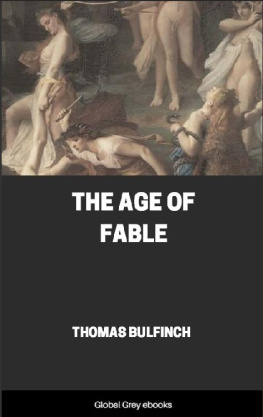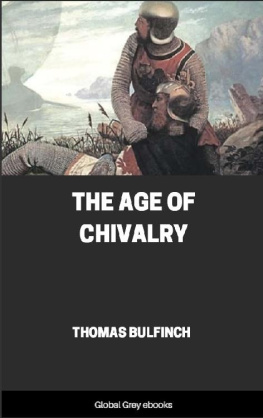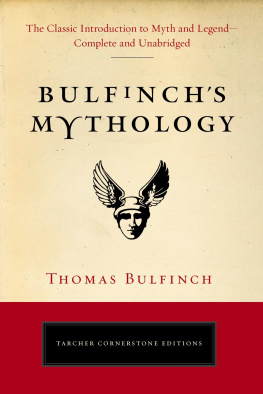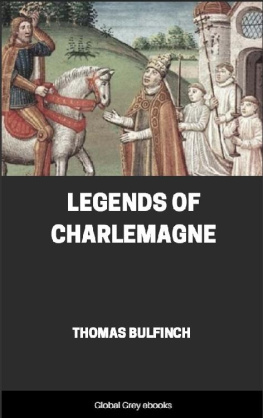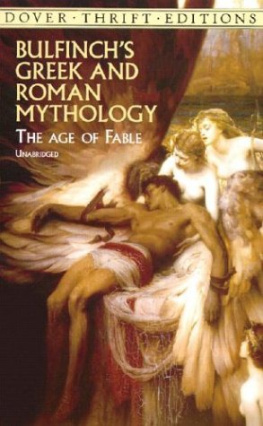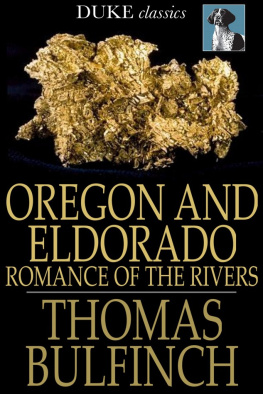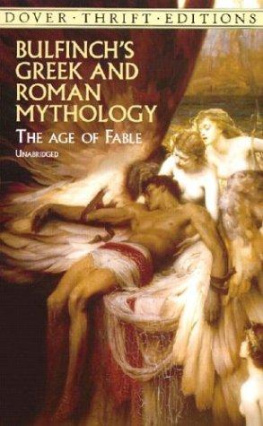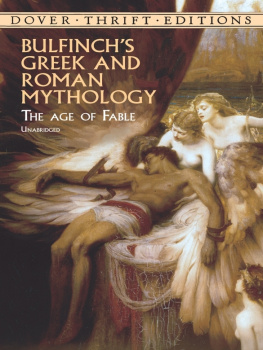Thomas Bulfinch - The Age of Fable
Here you can read online Thomas Bulfinch - The Age of Fable full text of the book (entire story) in english for free. Download pdf and epub, get meaning, cover and reviews about this ebook. year: 2018, publisher: Global Grey ebooks, genre: Detective and thriller. Description of the work, (preface) as well as reviews are available. Best literature library LitArk.com created for fans of good reading and offers a wide selection of genres:
Romance novel
Science fiction
Adventure
Detective
Science
History
Home and family
Prose
Art
Politics
Computer
Non-fiction
Religion
Business
Children
Humor
Choose a favorite category and find really read worthwhile books. Enjoy immersion in the world of imagination, feel the emotions of the characters or learn something new for yourself, make an fascinating discovery.
- Book:The Age of Fable
- Author:
- Publisher:Global Grey ebooks
- Genre:
- Year:2018
- Rating:4 / 5
- Favourites:Add to favourites
- Your mark:
- 80
- 1
- 2
- 3
- 4
- 5
The Age of Fable: summary, description and annotation
We offer to read an annotation, description, summary or preface (depends on what the author of the book "The Age of Fable" wrote himself). If you haven't found the necessary information about the book — write in the comments, we will try to find it.
The Age of Fable — read online for free the complete book (whole text) full work
Below is the text of the book, divided by pages. System saving the place of the last page read, allows you to conveniently read the book "The Age of Fable" online for free, without having to search again every time where you left off. Put a bookmark, and you can go to the page where you finished reading at any time.
Font size:
Interval:
Bookmark:
BULFINCH'S MYTHOLOGY
THE AGE OF FABLE
BY
THOMAS BULFINCH
1855
Bulfinch's Mythology, The Age of Fable by Thomas Bulfinch.
This edition was created and published by Global Grey
GlobalGrey 2018

globalgreyebooks.com
The religions of ancient Greece and Rome are extinct. The so-called divinities of Olympus have not a single worshipper among living men. They belong now not to the department of theology, but to those of literature and taste. There they still hold their place, and will continue to hold it, for they are too closely connected with the finest productions of poetry and art, both ancient and modern, to pass into oblivion.
We propose to tell the stories relating to them which have come down to us from the ancients, and which are alluded to by modern poets, essayists, and orators. Our readers may thus at the same time be entertained by the most charming fictions which fancy has ever created, and put in possession of information indispensable to every one who would read with intelligence the elegant literature of his own day.
In order to understand these stories, it will be necessary to acquaint ourselves with the ideas of the structure of the universe which prevailed among the Greeks the people from whom the Romans, and other nations through them, received their science and religion.
The Greeks believed the earth to be flat and circular, their own country occupying the middle of it, the central point being either Mount Olympus, the abode of the gods, or Delphi, so famous for its oracle.
The circular disk of the earth was crossed from west to east and divided into two equal parts by the Sea, as they called the Mediterranean, and its continuation the Euxine, the only seas with which they were acquainted.
Around the earth flowed the River Ocean, its course being from south to north on the western side of the earth, and in a contrary direction on the eastern side. It flowed in a steady, equable current, unvexed by storm or tempest. The sea, and all the rivers on earth, received their waters from it.
The northern portion of the earth was supposed to be inhabited by a happy race named the Hyperboreans, dwelling in everlasting bliss and spring beyond the lofty mountains whose caverns were supposed to send forth the piercing blasts of the north wind, which chilled the people of Hellas (Greece). Their country was inaccessible by land or sea. They lived exempt from disease or old age, from toils and warfare. Moore has given us the Song of a Hyperborean, beginning
I come from a land in the sun-bright deep,
Where golden gardens glow,
Where the winds of the north, becalmed in sleep,
Their conch shells never blow.
On the south side of the earth, close to the stream of Ocean, dwelt a people happy and virtuous as the Hyperboreans. They were named the thiopians. The gods favoured them so highly that they were wont to leave at times their Olympian abodes and go to share their sacrifices and banquets.
On the western margin of the earth, by the stream of Ocean, lay a happy place named the Elysian Plain, whither mortals favoured by the gods were transported without tasting of death, to enjoy an immortality of bliss. This happy region was also called the Fortunate Fields, and the Isles of the Blessed.
We thus see that the Greeks of the early ages knew little of any real people except those to the east and south of their own country, or near the coast of the Mediterranean. Their imagination meantime peopled the western portion of this sea with giants, monsters, and enchantresses, while they placed around the disk of the earth, which they probably regarded as of no great width, nations enjoying the peculiar favour of the gods, and blessed with happiness and longevity.
The Dawn, the Sun, and the Moon were supposed to rise out of the Ocean, on the eastern side, and to drive through the air, giving light to gods and men. The stars, also, except those forming the Wain or Bear, and others near them, rose the stream of Ocean. There the sun-god embarked in a winged boat, which conveyed him round by the northern part of the earth, back to his place of rising in the east. Milton alludes to this in his Comus:
Now the gilded car of day
His golden axle doth allay
In the steep Atlantic stream,
And the slope Sun his upward beam
Shoots against the dusky pole,
Facing towards the other goal
Of his chamber in the east.
The abode of the gods was on the summit of Mount Olympus, in Thessaly. A gate of clouds, kept by the godesses named the Seasons, opened to permit the passage of the Celestials to earth, and to receive them on their return. The gods had their separate dwellings; but all, when summoned, repaired to the palace of Jupiter, as did also those deities whose usual abode was the earth, the waters, or the under-world. It was also in the great hall of the palace of the Olympian king that the gods feasted each day on ambrosia and nectar, their food and drink, the latter being handed round by the lovely goddess Hebe. Here they conversed of the affairs of heaven and earth; and as they quaffed their nectar, Apollo, the god of music, delighted them with the tones of his lyre, to which the Muses sang in responsive strains. When the sun was set, the gods retired to sleep in their respective dwellings.
The following lines from the Odyssey will show how Homer conceived of Olympus:
So saying, Minerva, goddess azure-eyed,
Rose to Olympus, the reputed seat
Eternal of the gods, which never storms
Disturb, rains drench, or snow invades, but calm
The expanse and cloudless shines with purest day.
There the inhabitants divine rejoice
For ever.
Cowper.
The robes and other parts of the dress of the goddesses were woven by Minerva and the Graces, and everything of a more solid nature was formed of the various metals. Vulcan was architect, smith, armourer, chariot builder, and artist of all work in Olympus. He built of brass the houses of the gods; he made for them the golden shoes with which they trod the air or the water, and moved from place to place with the speed of the wind, or even of thought. He also shod with brass the celestial steeds, which whirled the chariots of the gods through the air, or along the surface of the sea. He was able to bestow on his workmanship self-motion, so that the tripods (chairs and tables) could move of themselves in and out of the celestial hall. He even endowed with intelligence the golden handmaidens whom he made to wait on himself.
Jupiter, or Jove (Zeus), though called the father of gods and men, had himself a beginning. Saturn (Cronos) was his father, and Rhea (Ops) his mother. Saturn and Rhea were of the race of Titans, who were the children of Earth and Heaven, which sprang from Chaos, of which we shall give a further account in our next chapter.
There is another cosmogony, or account of the creation, according to which Earth, Erebus, and Love were the first of beings. Love (Eros) issued from the egg of Night, which floated on Chaos. By his arrows and torch he pierced and vivified all things, producing life and joy.
Saturn and Rhea were not the only Titans. There were others, whose names were Oceanus, Hyperion, Iapetus, and Ophion, males; and Themis, Mnemosyne, Eurynome, females. They are spoken of as the elder gods, whose dominion was afterwards transferred to others. Saturn yielded to Jupiter, Oceanus to Neptune, Hyperion to Apollo. Hyperion was the father of the Sun, Moon, and Dawn. He is therefore the original sun-god, and is painted with the splendour and beauty which were afterwards bestowed on Apollo.
Next pageFont size:
Interval:
Bookmark:
Similar books «The Age of Fable»
Look at similar books to The Age of Fable. We have selected literature similar in name and meaning in the hope of providing readers with more options to find new, interesting, not yet read works.
Discussion, reviews of the book The Age of Fable and just readers' own opinions. Leave your comments, write what you think about the work, its meaning or the main characters. Specify what exactly you liked and what you didn't like, and why you think so.

